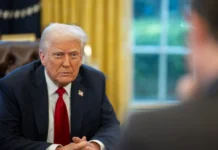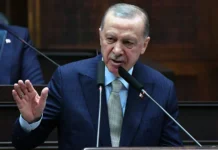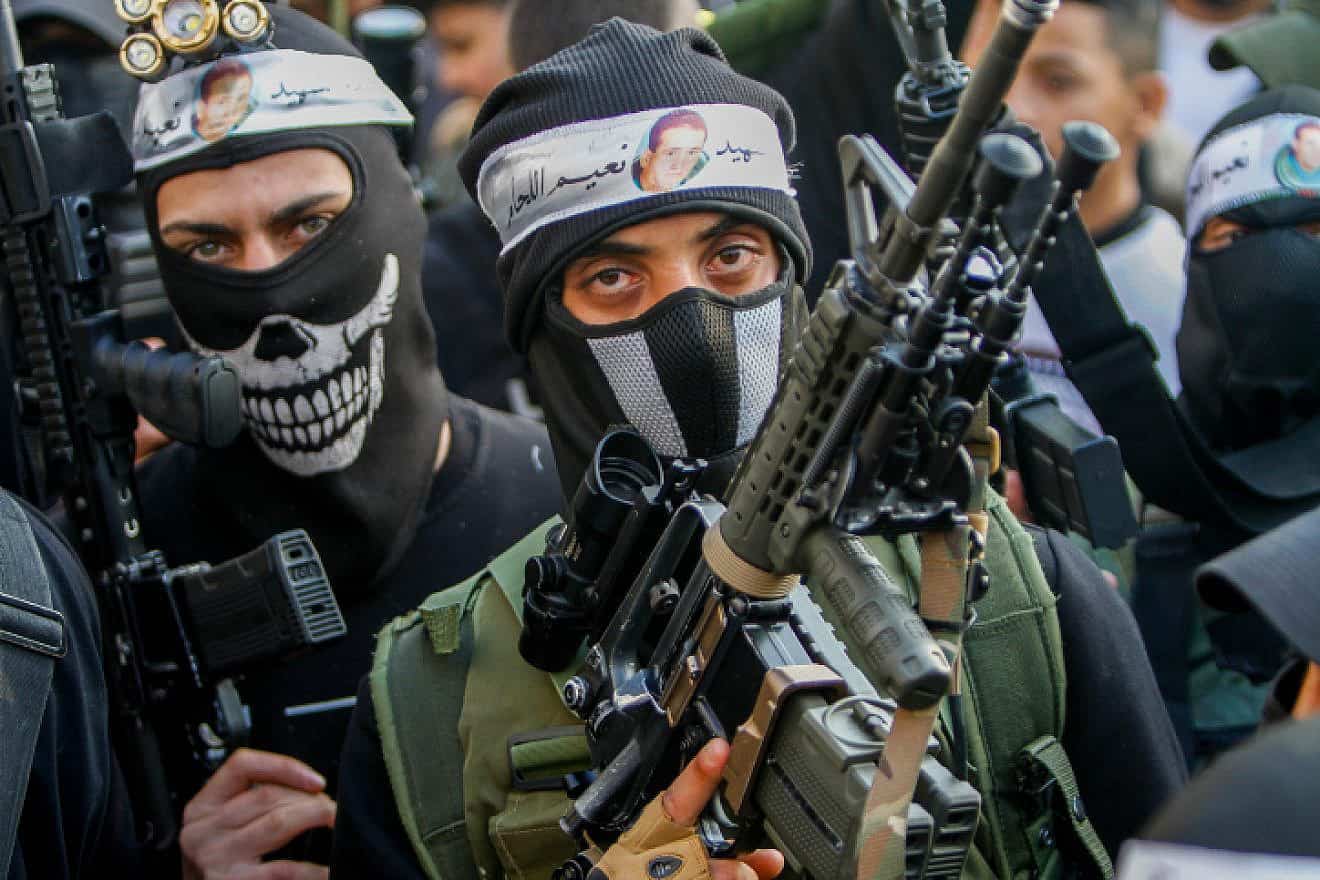The new Palestinian Authority government headed by Mohammed Mustafa says it is planning financial and administrative reforms in its institutions as part of a U.S. plan to “revitalize” the P.A.
However, since the new P.A. cabinet’s formation more than a month ago, Mustafa and his ministers have not addressed the thorny issue of the armed groups that control the streets of many Palestinian towns, villages, and refugee camps in the West Bank.
Instead, Mustafa’s government has been preoccupied with the war between Israel and Hamas. In public statements, the P.A. prime minister focused on the need to provide humanitarian aid and various services to the Gaza Strip, while ignoring the growing influence of armed groups in the West Bank, particularly in the areas of Nablus, Jenin, Qalqilya and Tulkarem.
Mustafa, who has long served as an economic adviser to P.A. President Mahmoud Abbas, is undoubtedly uncomfortable addressing the problem of armed groups in these areas. He is well aware that he will incur the wrath of the Palestinian public if he speaks of the need to disband the armed groups and restore law and order.
Most armed groups in the West Bank currently operate within the framework of “battalions” whose members belong to Hamas, the Palestinian Islamic Jihad (PIJ) and disgruntled activists from Abbas’s ruling Fatah party.
Almost every town, village and refugee camp in the northern West Bank has its own “battalion” made up of dozens of armed men. These armed men are hailed by the Palestinian public as “heroes” and “resistance fighters.”
The P.A. and its media also glorify the gunmen, although many of them harshly criticize Abbas and his policies. Gunmen killed by Israeli security forces are regularly referred to as “martyrs” by the P.A.-controlled media, and in some cases their funerals are broadcast live on Palestine TV in Ramallah.
Who controls the Palestinian security forces?
There is another problem. Mustafa and his government have little, if any, control over some branches of the P.A. security forces, particularly the General Intelligence Service (GIS) and the Preventive Security Service (PSS). This is even though the P.A. Interior Ministry is formally responsible for all security services, including the blue-uniformed police and the paramilitary National Security Force. The GIS and the PSS are directly subordinate to Abbas in his capacity as “Commander-in-Chief of the Armed Forces.”
Therefore, it is unrealistic to expect Mustafa or P.A. Interior Minister Ziyad Hab al-Reeh (a former commander of the PSS in the West Bank) to order a crackdown on the armed groups and individuals roaming the streets of Palestinian communities in the northern West Bank. The only person authorized to do so is 88-year-old Abbas. In recent years, however, Abbas has shown that he has no intention of ending the widespread phenomenon of armed groups operating in the areas under his control.
At most, Abbas has been willing to negotiate with some of the gunmen to hand themselves over to P.A. security forces under the pretext that he wants to protect them from being arrested or killed by Israeli security forces. Several gunmen in Nablus and the nearby Balata refugee camp have agreed to do so.
It is unlikely that Abbas will take action against the armed groups as long as they do not pose a direct threat to him and his security forces. The P.A. president is already facing a backlash from many Palestinians for failing to end security coordination between the P.A. security forces and Israel. In the eyes of these Palestinians, he is nothing more than a “subcontractor” to the Israeli security apparatus. This is another reason Abbas is reluctant to order his security forces to rein in the gunmen.
Although Israeli security forces have killed dozens of gunmen since Hamas attacked Israel on Oct. 7, Palestinian security sources estimate that there are still between 3,000 and 3,500 militiamen in the northern West Bank. According to the sources, the Tulkarem Battalion alone has more than 200 gunmen. Most of them are located in the Nur Shams and Tulkarem refugee camps.
The Tulkarem Battalion is led by Mohammed Jaber, nicknamed Abu Shuja (“father of courage”). Last month, P.A. security officers tried unsuccessfully to arrest Jaber when they intercepted his car in the center of Tulkarem. One of his bodyguards was fatally shot by the officers during the botched arrest attempt.
The incident was strongly condemned by many Palestinians, who accused the P.A. security forces of acting on Israel’s behalf to eliminate Abu Shuja and the Tulkarem Battalion. Abu Shuja is wanted by Israel for his role in a series of terrorist attacks on Israeli soldiers and civilians in the Tulkarem area.
Members of the Jenin Battalion have also clashed with P.A. security officers on several occasions. They even carried out several shooting attacks against the headquarters of the P.A. security forces in Jenin.
On May 1, 2024, Omar Abu al-Ful, a senior member of the Tulkarem Battalion, was shot and killed by P.A. security officers. A spokesperson for the P.A. security forces said the officers responded after coming under fire. After the incident, local gunmen took to the streets to protest the killing, while Hamas and PIJ strongly condemned the P.A. over the incident.
Abu Shuja and his gang are now considered the largest and most dangerous militia in the northern West Bank. Palestinian officials believe that Iran funds him and his men through Hamas and the PIJ.
The officials expressed fears that members of the Tulkarem Battalion may attempt to carry out an Oct. 7-style attack against Israeli communities located just a few hundred meters from Tulkarem. Abu Shuja and his men have already carried out several shooting attacks against these communities from Tulkarem. Similarly, gunmen in the Jenin area have also attacked Israeli communities near the Jenin border.
The U.S. plan to “revitalize” the P.A. should focus first and foremost on enforcing law and order in Palestinian-controlled areas of the West Bank. This is more important and urgent than financial and administrative reforms. Otherwise, the P.A. will continue to lose its control over these areas, posing a security threat not only to the P.A. but also to Israel.
Originally published by the Jerusalem Center for Public Affairs.


























